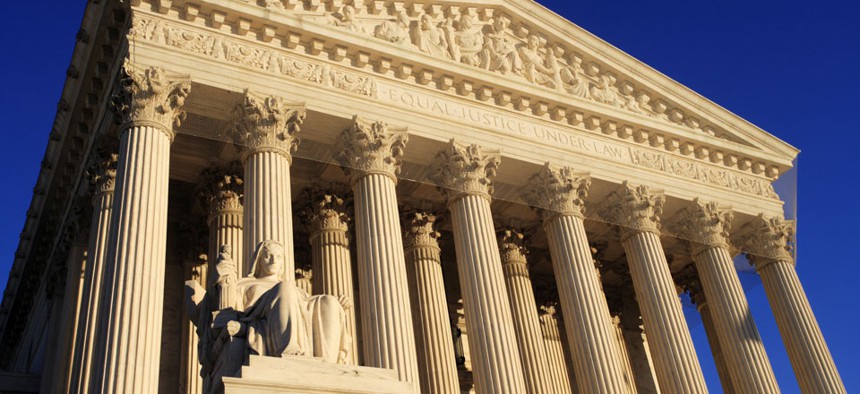'The First Time a Tumblr Has Been Used in an Argument in a Supreme Court Brief'

fstockfoto/Shutterstock.com
"Amicus Tumblr" has a certain ring to it, no?
On October 8, the Supreme Court will hear arguments in McCutcheon v. Federal Election Commission. The case centers on whether aggregate limits on donations to campaigns are constitutional, an extension of the legal logic behind the infamous Citizens United decision.
Before the Court hears arguments, though, the justices will have already consulted something unique: A legal document predicated on a Tumblr. According toLawrence Lessig, the Harvard Law professor filing the brief, it’s the first time a Tumblr has been used in a Supreme Court filing.
On his own Tumblr this morning, Lessig (who’s also a contributor to The Atlantic) explained the reasoning:
The basic argument of the brief is that the Framers of the Constitution used the word “corruption” in a different, more inclusive way, than we do today. The Tumblr captures 325 such uses collected from the framing context, and tags to help demonstrate this more inclusive meaning.
The upshot of the collection is that the Framers meant more by “corruption” than simple “quid pro quo” (this for that) corruption. In particular, their main focus (or most common usage) was institutional corruption. And one prominent example of the institutional corruption they were concerned about was an institution developing an improper dependence. Like — to pick just one totally random example — a Congress developing a dependence upon its funders, rather than the dependence the framers intended — “on the People alone.”
The Tumblr is already online (at ocorruption.tumblr.com), and its sidebar promises to “[collect] every use of the term ‘corruption’ among the records of the Framers.”
(Image via fstockfoto/Shutterstock.com)






